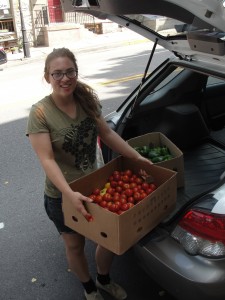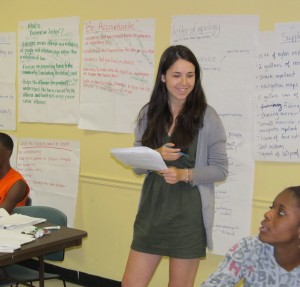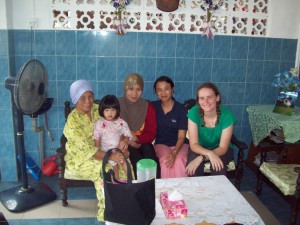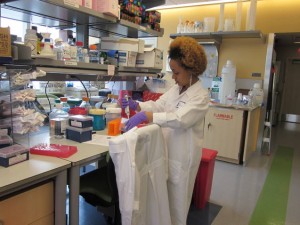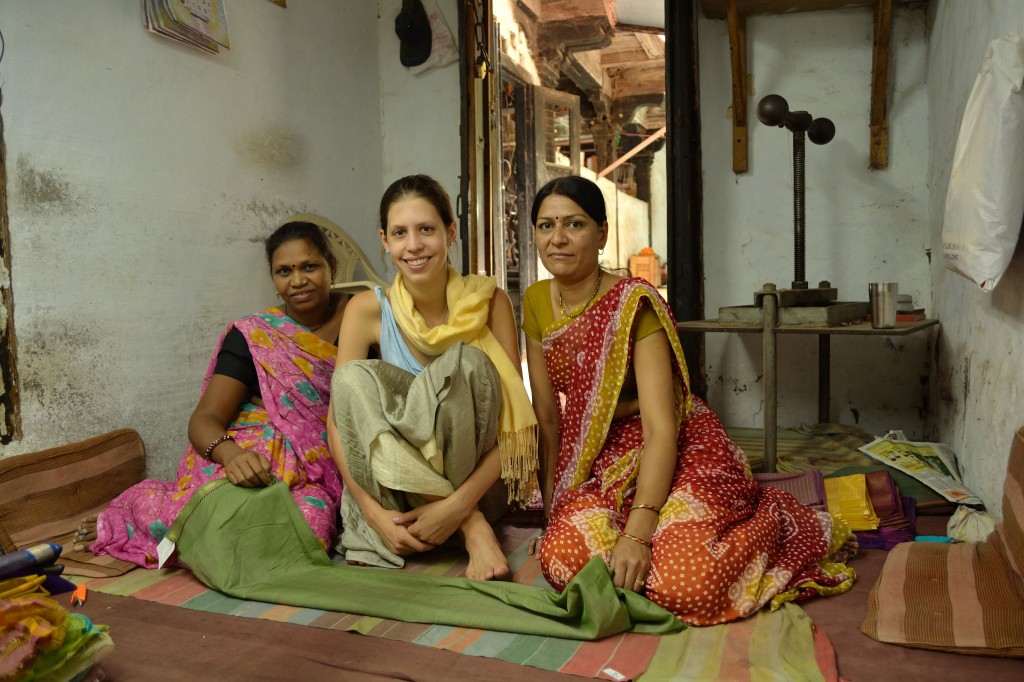“In Their Own Words” is an ongoing series featuring the experiences of Middlebury students at their summer internships. This summer Marcella Houghton ’12.5 interned with the State College Area Food Bank in State College, PA.
Twice a week I assisted Bill Zimmer, the home gardener growing crops for the State College Food Bank, and worked at the Food Bank on alternating days. In addition to harvesting and maintaining the crops he was already growing, I assumed responsibility for planting and harvesting a bed of green beans. When the State College community garden got in touch with Bill with an interest in donating to the SCFB, I contacted and met with the garden intern to set up a system for community gardeners to donate their extra harvest. By the middle of the summer the garden had a cooler set up behind a shade cloth, where gardeners could donate and where I would pick up donations weekly.
At the food bank, I served as an all-purpose volunteer. Every distribution day I joined the morning crew with set-up, shelving, and receiving and sorting donations. I joined the new set of volunteers that came in on afternoons, and helped distribute food to clients. I drove the food bank van on errands and on donation pick-up runs. I also set up a recycling system for torn, dirty, or otherwise un-re-usable plastic bags. After broaching the idea with volunteers and the directors, I found and labeled a bin for the bags. Curbside recycling doesn’t include plastic bags in State College, but since the food bank regularly visits grocery stores, whoever’s driving the van can deliver the bags to the recycling receptacles outside of each store.
What did you learn?
Working at the food bank corrected some assumptions I had unknowingly harbored. I’d previously thought food banks relied almost exclusively on individual donations or food drives. But the SCFB receives the bulk of its items from federal and state programs, the South Central Food Bank in a nearby city, tax-deductible donations from grocery stores, and purchases of new groceries on the food bank budget. I was surprised to learn that clients of the SCFB are eligible for groceries only 8 times per year. No chance of surviving off Food Bank groceries alone, contrary to my previous notions.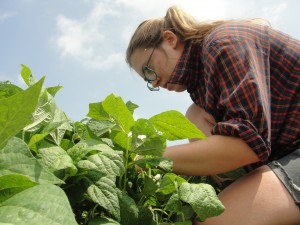
What are your plans for the future?
My perception of food assistance programs shifted after this experience, hopefully giving me a better sense for how they operate. Working for the food bank widened my eyes to the complexity of social service programs like the SCFB. I also observed among volunteers and people I spoke with a concern that clients might be able to “cheat the system” and get more food than allotted. I’m inclined to think of this anxiety as a misunderstanding; however, whether people “cheat” often or not I believe that programs should strive to treat clients with compassion rather than suspicion, and I realized just how important it is to cultivate that attitude among volunteers in a program like this one.
This summer I discovered an interest in managing volunteers, when I realized I was often in the position of delegating tasks to new recruits. Volunteering every other day gave me a crash course in many of the daily tasks, and it was rewarding to connect a task-less volunteer with a task and attempt to streamline the day’s to-do list. I found it refreshing to interact with many small teams on a regular schedule (the Monday morning crew, the Monday afternoon crew, etc.) and get to know the rhythms of each group of core volunteers. I could see myself in the position of a volunteer organizer in a similar program.
Think this experience sounded pretty cool? Check out opportunities like this and more on MOJO.
